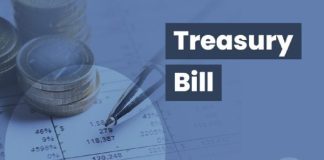Fuel subsidies are economic policies implemented by governments to reduce the cost of fuel for consumers. They involve the government providing financial assistance to fuel producers or distributors, effectively lowering the retail price of fuel at the pump. While fuel subsidies can offer immediate relief to consumers, they often have long-term economic, environmental, and social consequences.
Fuel subsidies play a complex role in economies worldwide, aiming to provide immediate relief to consumers but often burdening governments and distorting markets.
In this article, BizWatch Nigeria delves into the details of fuel subsidies, their implications, and the challenges associated with them.
What are Fuel Subsidies?
They are government interventions designed to lower the cost of energy for consumers. They are typically applied to gasoline, diesel, or other forms of fuel used in transportation, industry, or household energy consumption. Governments may use subsidies to stabilize energy prices, support certain industries, promote economic growth, or alleviate the financial burden on citizens.
How They Work
Fuel subsidies can be implemented through various mechanisms. Common approaches include direct payments to fuel producers or importers, tax exemptions or reductions, and price controls. These measures aim to bridge the gap between the production cost of fuel and the retail price, thus lowering the final cost for consumers. Subsidies can be targeted towards specific groups, such as low-income households or certain industries.
Implications
Economic Impact
Amongst other things, they can strain government budgets, leading to fiscal imbalances and reducing funds available for other social and developmental programs. The cost of subsidies may increase over time due to fluctuating international oil prices or increased fuel consumption.
Opportunity Cost
Subsidies on fuel often divert resources from more productive sectors of the economy. Instead of investing in education, healthcare, or infrastructure, governments may end up allocating a significant portion of their budget to fuel subsidies.
Market Distortions
Fuel subsidies can distort market dynamics and create inefficiencies. When prices are artificially reduced, consumers have less incentive to conserve fuel or adopt alternative energy sources. Subsidies can also discourage investments in renewable energy technologies and hinder the development of a sustainable energy sector.
Environmental Impact
They tend to increase fuel consumption and carbon emissions, contributing to environmental degradation and climate change. By discouraging energy efficiency measures and renewable energy adoption, they undermine efforts to transition towards cleaner and greener energy sources.
Social Equity
While they aim to alleviate the financial burden on consumers, they often benefit high-income groups disproportionately. Subsidies on fuel can be regressive, as wealthier individuals tend to consume more energy and benefit more from lower fuel prices. This exacerbates income inequality and reduces the effectiveness of subsidies in reaching the intended beneficiaries.
Challenges and Alternatives:
Fiscal Sustainability
Governments face the challenge of balancing the need to provide affordable energy with fiscal responsibility. Gradually phasing out or reforming fuel subsidies can free up resources for more targeted social programs and investments in sustainable development.
Targeted Subsidies
Shifting from broad-based subsidies to targeted programs can ensure that the most vulnerable segments of society receive assistance while minimizing the fiscal burden. This approach requires efficient identification and registration systems to reach those in need effectively.
Energy Pricing Reforms
Implementing market-based energy pricing mechanisms can help reflect the true cost of fuel, including environmental and social externalities. This encourages energy conservation, incentivizes investment in alternative energy sources, and supports the transition to a more sustainable energy future.












